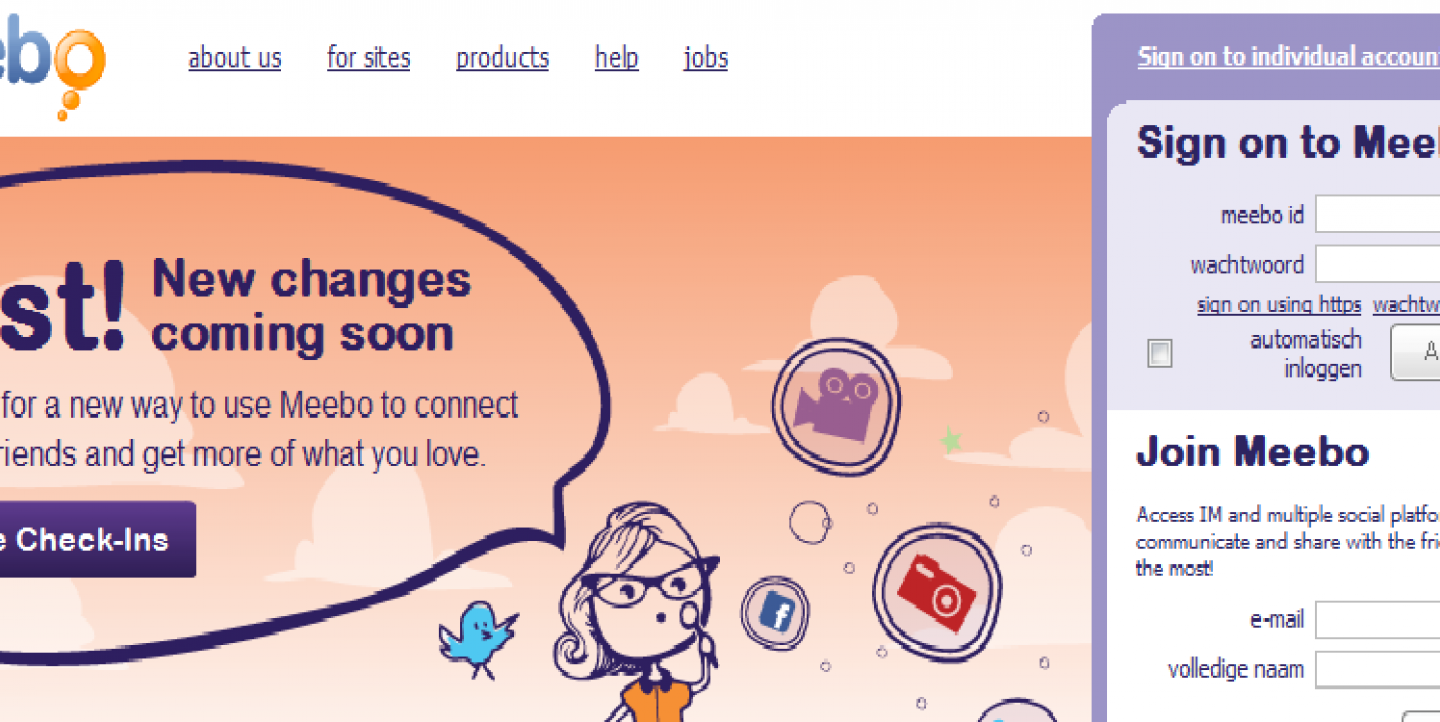News organizations need all the friends they can get. Some of them are employing social media tools like Meebo to confer "VIP" status on regular readers.
Meebo, launched in 2005 with the goal of keeping friends connected online, recently rolled out a web check-in system, creating a way for news websites to keep tabs on their most frequent visitors.
The system has reached a total of 8,000 sites. Among them, global news organization Christian Science Monitor which uses the platform to identify the most loyal readers as "VIPs." (This technique will sound familiar to IJNet readers who remember our article on what news organizations can learn from "Mafia Wars.")
In an email Q&A, Seth Sternberg, Meebo co-founder and CEO told IJNet about the new system's effect on interactive news consumption and its evolution into a broader web tool.
IJNet: Did you anticipate a more comprehensive use for Meebo outside connecting with friends?
Seth Sternberg: Our goal has always been to help connect users with the things and people that matter to them. That hasn’t changed; it will always be part of who Meebo fundamentally is.
But as we’ve developed products like the Meebo Bar, and future products that help people share and connect to people and things—from friends, to content, to experiences, to photos and beyond—we’ve evolved Meebo to connect people beyond your “chat buddies.” Meebo now brings people, content and websites together – across the entire web.
IJNet: What role do you think Meebo plays in garnering loyal readers on news websites?
SS: Since Meebo travels with you while you browse the entire web, publishers can implement a VIP program that incents repeat usage to their sites. It also helps engage VIP evangelists who will deliver additional visitors as they brush shoulders with others on the web who share similar interests to them, and will take their recommendations on content and news stories they should be reading.
IJNet: How does Meebo operate differently for news-readers than other social networking sites, like Twitter and Facebook?
SS: The fundamental difference is that Meebo stays with you as you browse the web so you don’t have to visit a particular site to see a story, for example. Meebo is not just about connecting you with your friends, but is about connecting you to like-minded people: people who want to read the same kinds of content/stories you do.
Rather than thinking of Meebo as a social network, think of it as a web discovery platform. We provide a light way to share your interests with people across the web while you browse and discover content.
IJNet: How do you see Meebo evolving in the next several years, as related to its use in news dissemination and reader participation?
SS: Forty percent of people already frequently recommend websites or visit websites that their friends and family recommend. So people are definitely looking for personal recommendations rather than an algorithm to drive them to content around the Internet.
We hope that Meebo’s web check-ins will become one of the primary tools people use to access those kinds of recommendations from people with similar interests around the entire web. With our reach, we can truly enable a scalable web discovery system, and bubble up people that you should “follow” as it relates to particular interests and content online.

